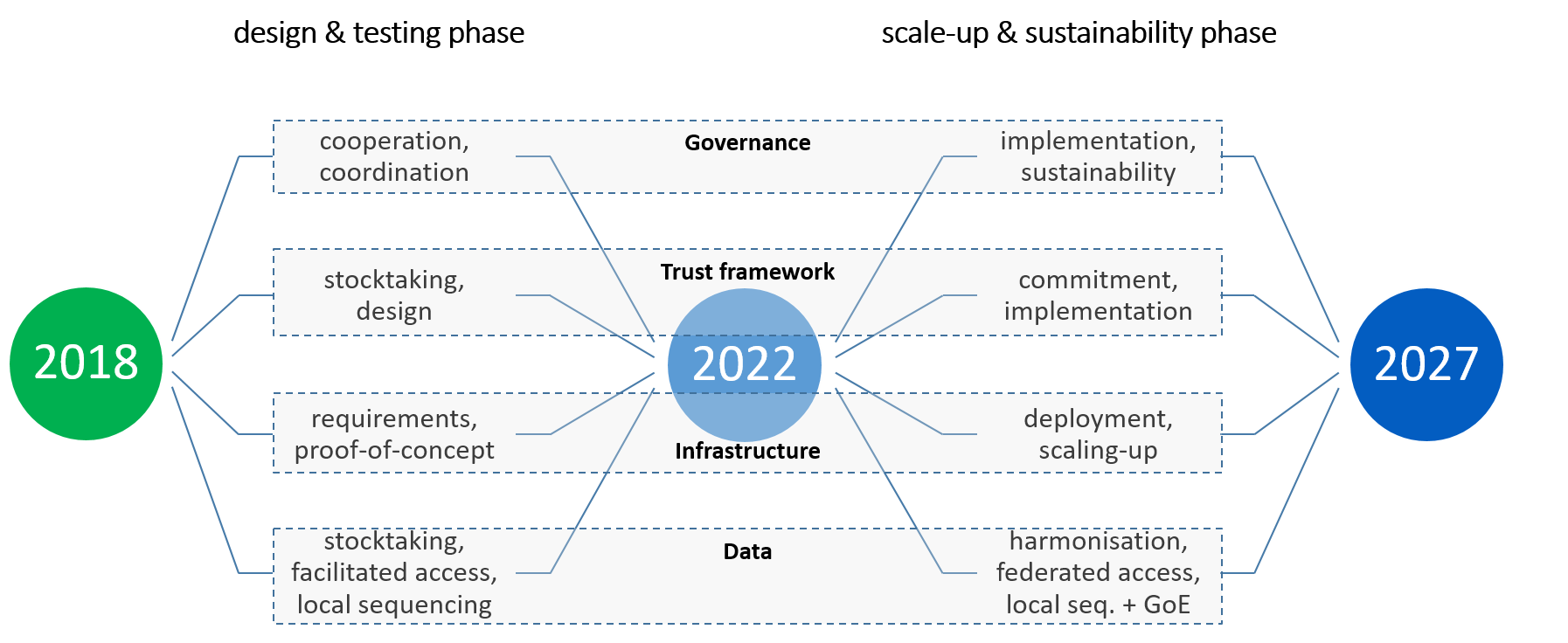The world's population is expected to grow by 30%, which will overburden the food supply sector. These forecasts are especially alarming for Singapore since it imports 90% of its food resources. To address this challenge and keep up with urban development while taking into account the innovative use of locally available spaces, Singapore plans on harnessing unused urban spaces to produce food and test new technologies in urban farming and aquaculture.
To achieve this, the Singaporean public sector, represented by the Ministry of Trade and Industry, the Food Agency, and the Agri-Food and Veterinary Authority of Singapore entered into a major partnership with the private sector, represented by Seeds Capital, AgFunds, Hatch, and The Yield Lab. This partnership led to the launch of a pilot project called Agri-Food Innovation Park in Sungei Kadut, an industrial and planning area in the north of Singapore. By 2020, Singapore plans to increase domestic food production by 30% by combining advanced farming and R&D activities, including plant factories, insect farms, and animal feed production facilities.

The 18-hectare Agri-Food Innovation Park is a key component of Singapore's efforts to develop an urban food production model and provide food for urban residents. The Park will provide valuable solutions and contributions for indoor farming to ensure healthy and safe food. To consolidate this strategy, the right conditions will foster innovation, qualified talent will be hired, and a strategic location will be chosen in Singapore.
This agri-tech park was established because it has several advantages. For example, it can leverage consorted efforts by encouraging urban farming and aquaculture activities in shared places. The Park also offers continuous opportunities to implement circular economy practices, as the output of a given company could be used as input for other companies. On another note, this Park provides a suitable base for research entities and companies in Singapore to conduct collaborative testing and research, and attract investments from Singapore's agri-tech businesses. Most importantly, the Park positions Singapore as a vital center for urban farming and aquaculture technologies.

A collaborative relationship will be formed between Agri-Food Innovation Park and the existing food sectors. The Park organizes R&D activities and carries out testing, competency training, and urban and indoor technological farming to produce fruit, vegetable, seafood, and alternative proteins. When these products eventually reach operating sectors in the food industry, they will be distributed for wholesale through supply services and will be processed by the food and packaging sector to meet user needs and major shopping centers in nearby residential areas. These interoperable processes generate waste which is co-managed to produce biofuels, compost, and other renewable energy sources.
The pilot phase of the Agri-Food Innovation Park is expected to be implemented by the second quarter of 2021 and used as a basis for future expansions. The Park, which received funding of around USD 90 million, is expected to create 100,000 jobs in the region. In November 2019, two events were organized on innovation in the food and farming industry: The Asia-Pacific Agri-Food Innovation Summit and the Singapore Week of Innovation and Technology / FinTech Festival. The Week of Innovation was a three-day summit that brought together agri-businesses and entities responsible for indoor farming and component development.

The Agency for Science, Technology, and Research (A*STAR) of the Ministry of Trade and Industry launched new initiatives, including the establishment of a research institute; the Singapore Institute of Food and Biotechnology Innovation (SIFBI), in the first half of 2020. The institute serves as a channel to strengthen communication and collaboration between the sector's actors and works alongside partners such as the National University of Singapore and Singapore's Food Agency.






